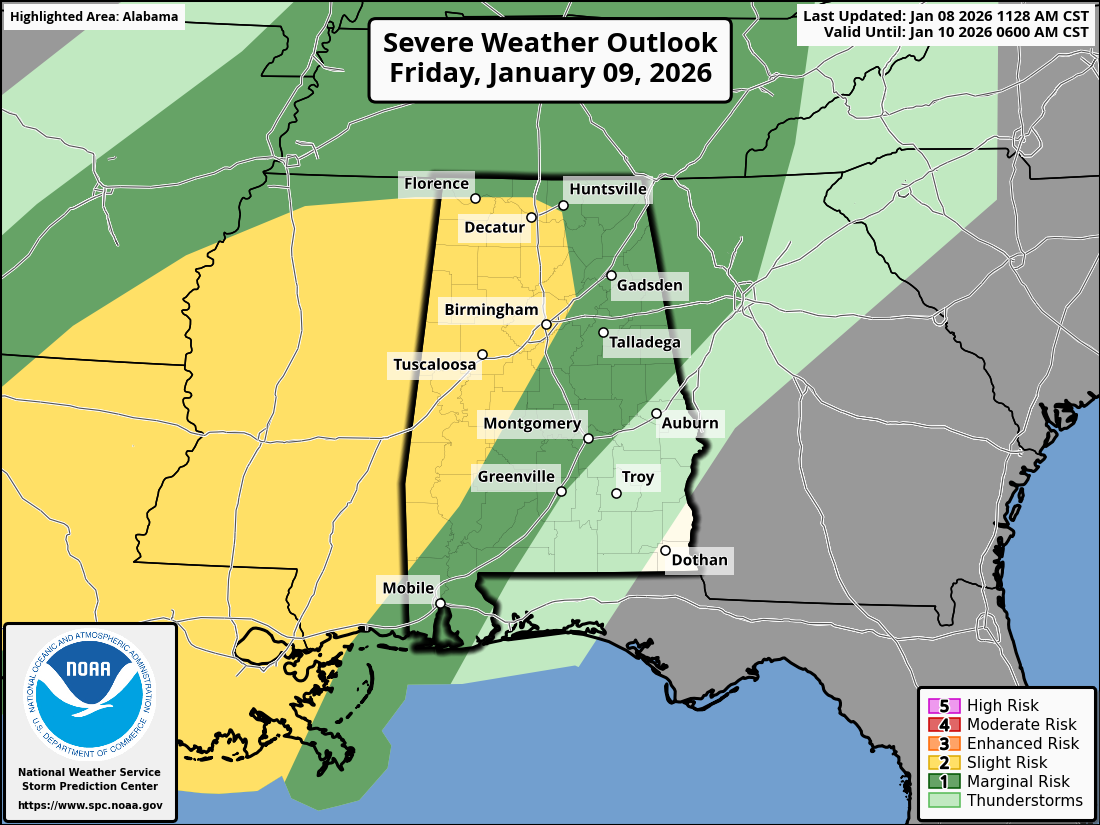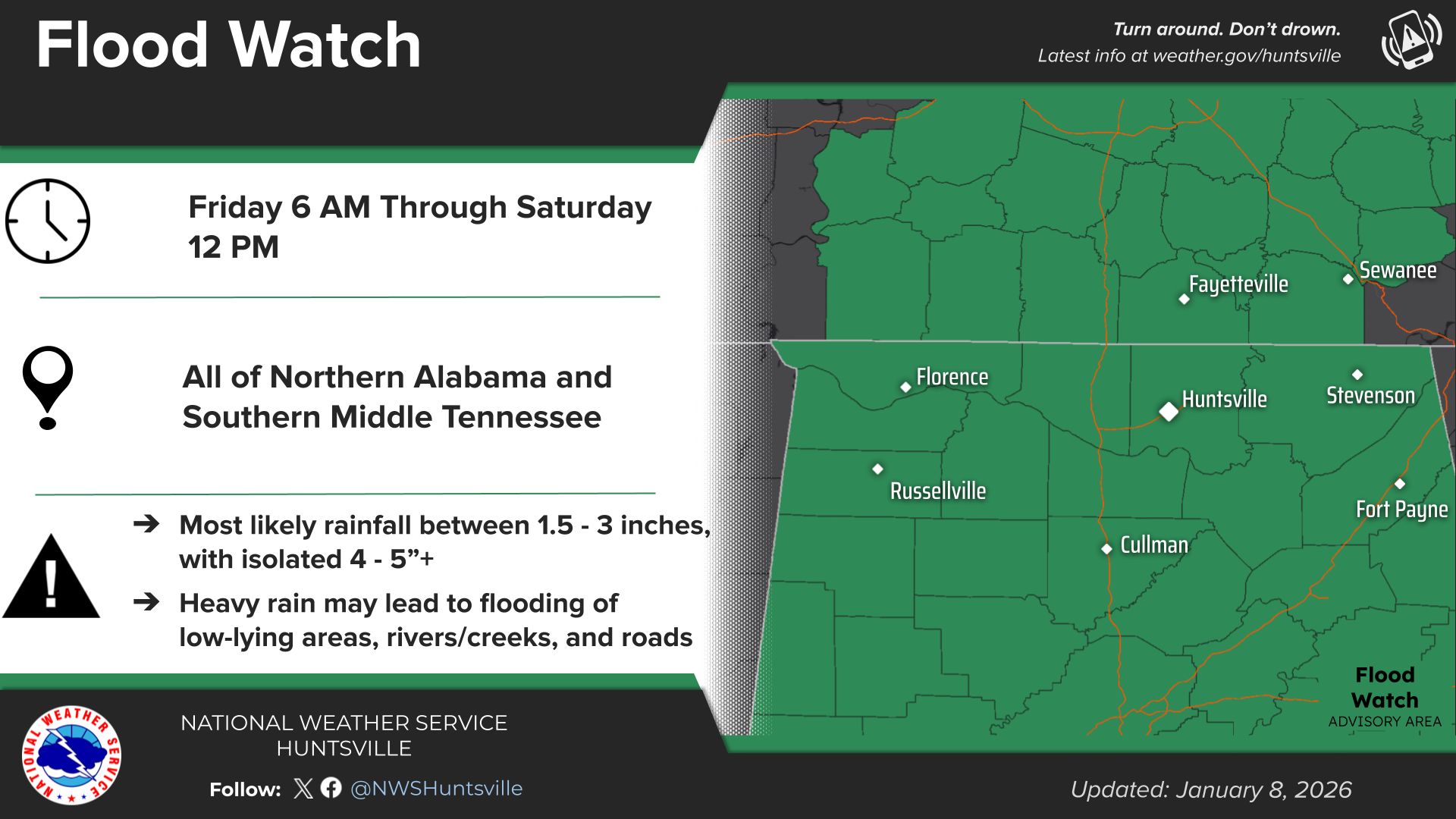Press Release from the Alabama Department of Public Health
The Alabama Department of Public Health (ADPH) continues investigating a hepatitis A outbreak in DeKalb and Jackson counties. Additional cases that may be related have also been identified in Cherokee and Marshall counties, with March 3 as the latest known symptom onset.
Currently, there are 22 cases in Jackson County, 12 cases in DeKalb County and 1 case in Marshall County. For more details about the current outbreak, please see Alabama’s Hepatitis A Outbreak Report at http://www.alabamapublichealth.gov/immunization/assets/HepatitisAoutbreakreport.pdf.
In addition to close contact to known hepatitis A cases, individuals may be exposed via an infected food handler at a restaurant, drug paraphernalia, jail or prison, homeless/transient living, oral/anal sex, or unvaccinated individuals who fail to wash their hands.
Hepatitis A vaccination offers full protection against hepatitis A infection from all exposures listed above, whether the infected individuals have symptoms or not.
Hepatitis A vaccine is recommended for anyone who participates in high-risk behaviors listed above and their contacts, and/or anyone who would like to protect themselves from the risk of infection. ADPH focuses on vaccinating high-risk persons or uninsured persons. Persons at low risk for hepatitis A who may wish to be vaccinated may contact their healthcare provider or pharmacy. Many health insurance plans cover hepatitis A vaccinations at physicians’ offices and pharmacies.
“Hepatitis A vaccination and proper hand washing will significantly reduce the spread of this virus in these counties and are important measures to protect the community,” said Medical Officer Dr. Karen Landers.
After being exposed to someone sick with hepatitis A, symptoms may appear from 15 to 50 days later. Symptoms may include fever, headache, fatigue, low appetite, stomach pain, nausea, vomiting, dark urine or jaundice. If persons, family or friends are experiencing any of these symptoms, they should contact their healthcare provider as soon as possible.
To reduce the spread of hepatitis A disease, especially in Northeast Alabama:
- Get vaccinated as soon as possible.
- Wash your hands frequently;
— Before, during, and after preparing food
— After using the toilet
— After changing diapers or cleaning up after a person who has used the toilet
— After touching garbage
— Before eating food
— Before and after caring for someone who is sick - Do not share drug paraphernalia, cigarettes, food, drinks, eating utensils, towels or toothbrushes.
For more information, visit https://alabamapublichealth.gov/immunization/assets/hepatitisaflyer.pdfor contact the ADPH Immunization Division Surveillance Branch at 1-800-469-4599.




